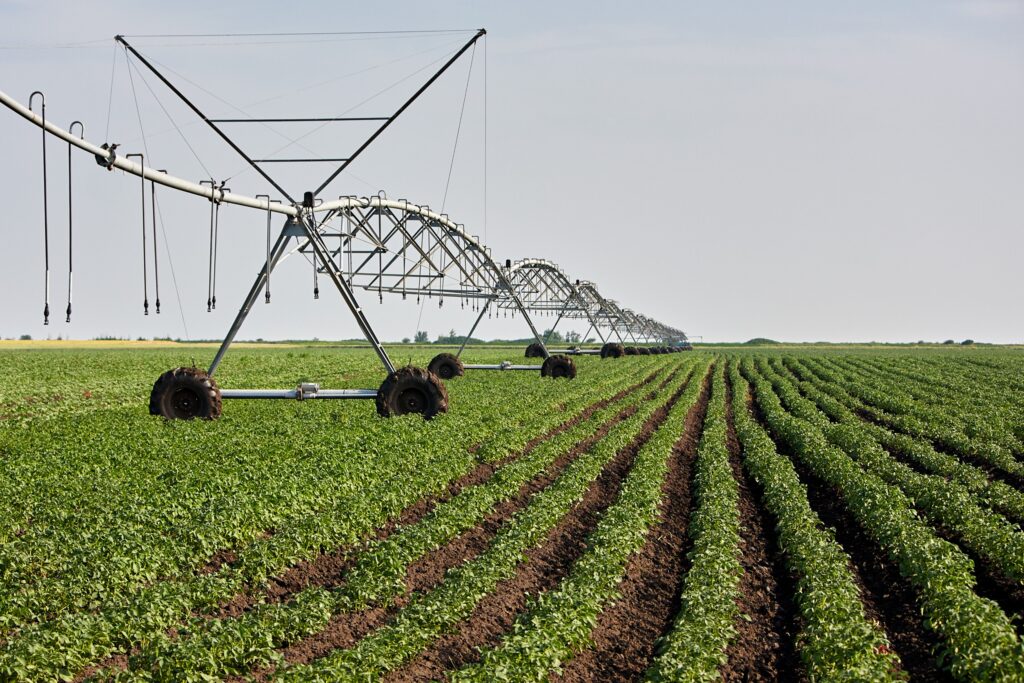The Many Benefits of Gypsum, Anhydrite, and Limestone

Corrects Aluminum Toxicity – Gypsum binds with aluminum to move it deeper in the soil column, it and in turn, temporarily corrects pH levels. Aluminum toxicity can occur in soils that have large amounts of aluminum containing minerals. Excessive amounts of aluminum can inhibit root development and limit crop growth.
Improved Soil Structure – Gypsum and limestone provide calcium, which can flocculate clay soils and reduce the swelling of smectite and open pore spaces improving the penetration of water, air, and roots into the soil.
Increased Water Infiltration – As the soil structure improves, the water infiltration rate and hydraulic conductivity of the soil increases.
Crust Prevention – Using gypsum and limestone to increase the electrolyte concentration of the irrigation water can prevent depositional crusts on soil surfaces, which can adversely affect water infiltration rates and seed emergence.
Better Moisture Retention – Gypsum and limestone help the soil take in and retain moisture, improving the soil’s water-use efficiency, which is especially critical in times of drought.


Fertilization – Gypsum supplies bio-available calcium and sulfur, elements vital to proper plant growth and development.
Enhanced Nutrient Absorption – The calcium supplied in gypsum and limestone is essential to the biochemical mechanisms by which most nutrients are absorbed. It regulates the balance of micronutrients in grass plants and optimizes the calcium to magnesium ratio in soils.
Environmentally Safe – Lawn and garden gypsum and limestone are inert and non-toxic.
Irrigation Effect – Controlling soil salinity with appropriate water management is especially important because soils with high sodium content perform poorly compared to calcium rich soils. Many irrigation sources contain excess salt, which in turn increase the salinity of soils.
Soluble Application – Soil performance can be improved by including gypsum and limestone with irrigation water because the calcium found in those minerals compete with other applications for binding sites in the soil.
Manure Treatment – Gypsum can be mixed with animal waste to combine with ammonium (NH4) to form ammonium sulfate to prevent loss of nitrogen and thus reduce odors. Ammonium sulfate is odor free.

For More Information
For more information or to purchase a product, please contact:
Oklahoma, Texas panhandle & Kansas
Chris Shetley
Sales Representative
(405) 366-9500 (Office)
(405) 222-8599 (Cell)
Chris.Shetley@Arcosa.com
Washington, Oregon, Nevada, California and surrounding area
Tim Stanfield
National Sales Manager
479-236-9575
Tim.Stanfield@arcosa.com
Prilled Products for Agricultural Applications
Jim Madsen
Marketing Director
(405) 366-9587 (Office)
Jim.Madsen@Arcosa.com
Gypsum and limestone help the soil take in and retain moisture, improving the soil’s water-use efficiency, which is especially critical in times of drought.